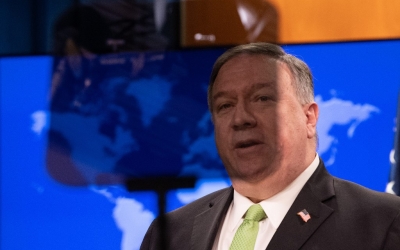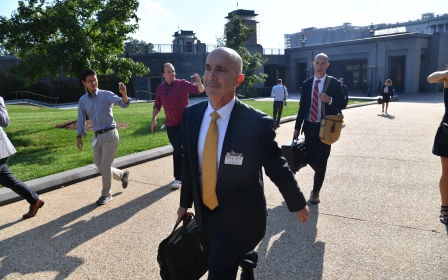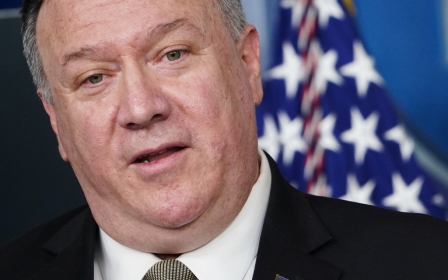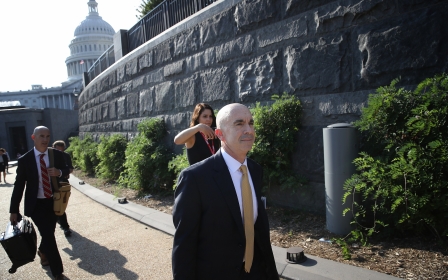US did not 'assess risks' of civilian casualties in Saudi arms sale, watchdog says

The State Department did not fully consider the risk of civilian casualties when it approved an $8.1bn arms sale to Saudi Arabia last year, according to an internal probe from the US inspector general's office.
The report, released on Tuesday, said the investigation had determined that the State Department "did not fully assess risks and implement mitigation measures to reduce civilian casualties and legal concerns" in regards to 22 transfers of precision-guided munitions to Saudi Arabia, the United Arab Emirates and Jordan.
The transfers included the sale of 120mm mortar rounds to Saudi Arabia and Javelin anti-tank guided missiles to the UAE, along with the transfer of laser-guided bombs from the UAE to Jordan, according to the report.
Of those 22 cases, lawmakers had placed holds on 15 under the Conventional Arms Transfer Policy, which prohibits the US from approving arms transfers if it knows those weapons will be used against civilians. The five-year Saudi-led war in Yemen has resulted in the deaths of at least 17,500 civilians, according to Human Rights Watch's most recent tally.
Tuesday's report directly contradicts the State Department's Monday assessment of the probe, in which the department declared that the IG office had "found no wrongdoing in the administration’s exercise of the emergency authorities".
The House Foreign Affairs Committee chairman, Eliot Engel, rejected Monday's briefing as an "obvious pre-spin of the findings [that] reeks of an attempt to distract and mislead".
Bypassing congress
The emergency declaration investigated in the probe regards an obscure state-of-emergency order that the Trump administration used to bypass Congress in May 2019 in order to approve an $8.1bn arms sale to Saudi Arabia. The move was criticised by Congress as an abuse of power, leading House Democrats to order the IG probe.
Congress objected to the sale for numerous reasons, including the state-sanctioned killing of MEE and Washington Post journalist Jamal Khashoggi, who was murdered in the kingdom's embassy in Istanbul in October 2018.
At the time, lawmakers said they were concerned that the weapons sale would provide US-made weapons to the Saudi government, which they feared could be used to kill more civilians - a concern Tuesday's report has seemingly confirmed.
The inspector general outlined additional details surrounding the State Department's failure to assess the risk of civilian casualties, as well as a recommendation, which was redacted as classified.
The report has been heavily anticipated, in part because US President Donald Trump in May fired Steve Linick, the inspector general charged with leading the investigation into the arms sales. At the time, Trump said he had fired Linick at the request of Secretary of State Mike Pompeo, a main person of interest in the investigation.
In addition to looking into the propriety of the arms sales, Linick was also investigating whether Pompeo had improperly used State Department resources for personal reasons, such as sending a department employee to walk his dog.
Pompeo has denied allegations that Linick's firing was related to his probe, linking the ousting instead to leaks that had come out of the State Department.
Linick's acting successor, Stephen Akard, abruptly resigned last week as his office was finalising the report on Pompeo and the Saudi arms deal.
The department said Akard was returning to the private sector after years of government service. The hiring of Akard, a longtime aide to Vice President Mike Pence, was widely seen as a way to keep a friendly figure in the investigator's seat.
Middle East Eye propose une couverture et une analyse indépendantes et incomparables du Moyen-Orient, de l’Afrique du Nord et d’autres régions du monde. Pour en savoir plus sur la reprise de ce contenu et les frais qui s’appliquent, veuillez remplir ce formulaire [en anglais]. Pour en savoir plus sur MEE, cliquez ici [en anglais].






